73 items found: Search results for "flow" in all categories x
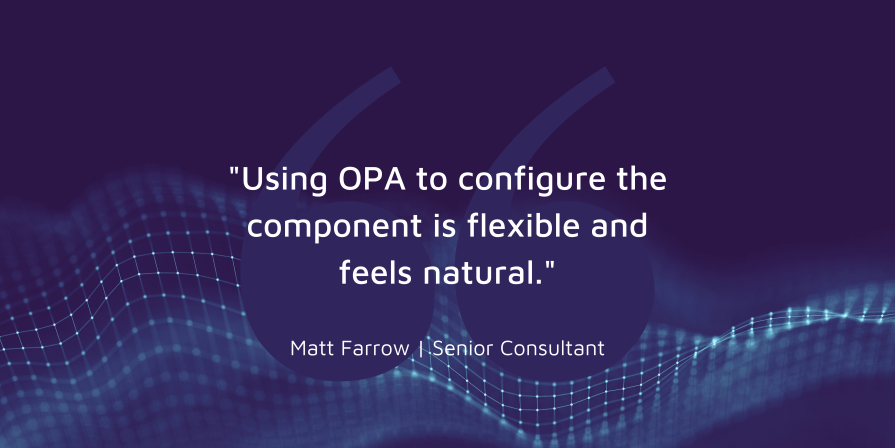
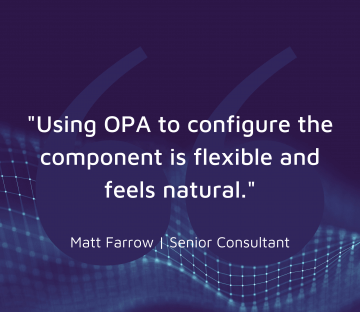
Read Matt Farrow’s blog as he explores the potential for using Open Policy Agent to filter and mask data being sent to and read from Apache Kafka.
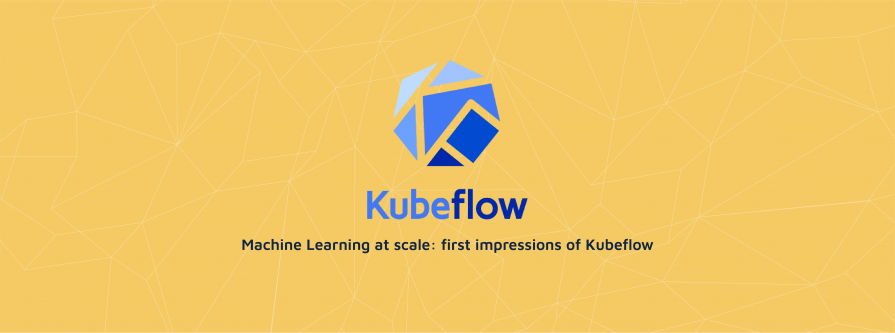
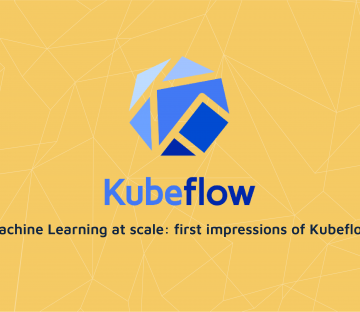
April 20, 2021 | Data Engineering, Machine Learning, Software Consultancy
Our recent client was a Fintech who had ambitions to build a Machine Learning platform for real-time decision making. The client had significant Kubernetes proficiency, ran on the cloud, and had a strong preference for using free, open-source software over cloud-native offerings that come with lock-in. Several components were spiked with success (feature preparation with Apache Beam and Seldon for model serving performed particularly strongly). Kubeflow was one of the next technologies on our list of spikes, showing significant promise at the research stage and seemingly a good match for our client’s priorities and skills.
That platform slipped down the client’s priority list before completing the research for Kubeflow, so I wanted to see how that project might have turned out. Would Kubeflow have made the cut?


January 7, 2016 | DevOps, Software Consultancy
Good consulting is, by its nature, an act of collaboration. We recently helped a company with a variety of challenges – some architecture, some coding, some systems, some people, some process (normal consultancy challenges) – unique to this client. During the project, we formalised some things we had thought before, but which had never crystallised – all the work we did was transformative. Whether it’s a code review, process review, DevOps implementation, or outright transformation, the primary goal is the same – improving flow. Flow (sometimes known as throughput) is the movement of raw materials through a system to become finished goods. It’s analogy in the service industry is the movement of customer requirements through to usable solution. And we help improve it.


March 28, 2024 | Blog, Platform Engineering
Watch the recording of our CEO/CTO, Nicki Watt from the KubeCon + CloudNativeCon 2024 on her talk “To K8S and Beyond – Maturing Your Platform Engineering Initiative.”
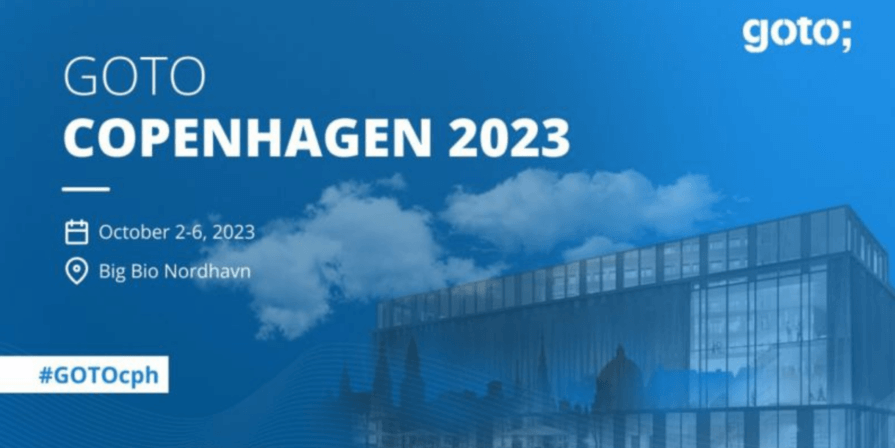

March 14, 2024 | Blog, Data Engineering, Platform Engineering
Watch the recording of our Technical Delivery Director, James Bowkett from the GOTO Copenhagen 2023 conference for his talk ‘The 12 Factor App For Data’
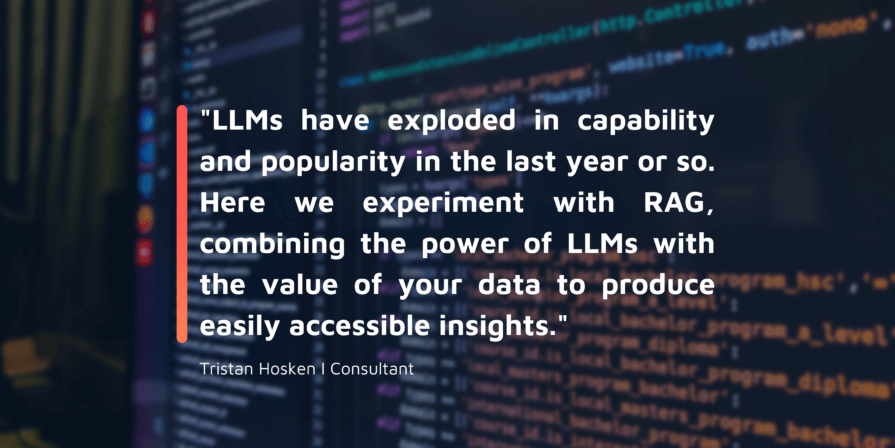
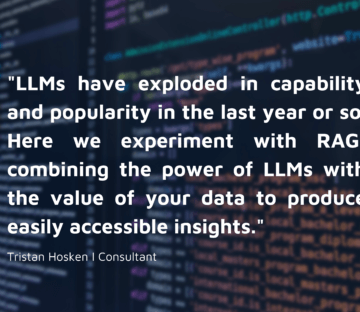
February 6, 2024 | AWS, Blog, OPA
Check out the latest blog by our Consultant, Tristan Hosken, as he explores Retrieval Augmented Generation (RAG). Tristan provides insights into advantages and disadvantages of RAG through hands-on experiments with AWS’s Bedrock and Azure’s OpenAI service.
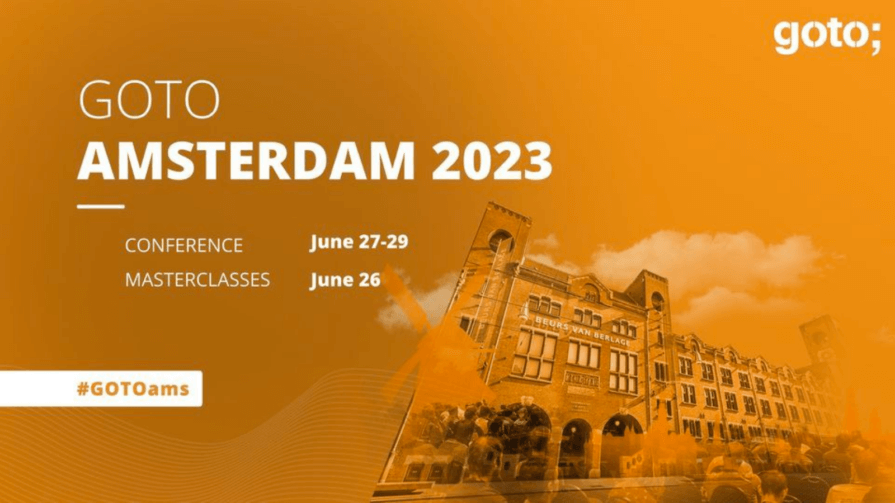

February 1, 2024 | Blog, Platform Engineering
Watch the recording of our CEO/CTO, Nicki Watt from the GOTO Amsterdam Conference 2023 on her talk “Why is it so Hard to Create a Great Platform-as-a-product?”
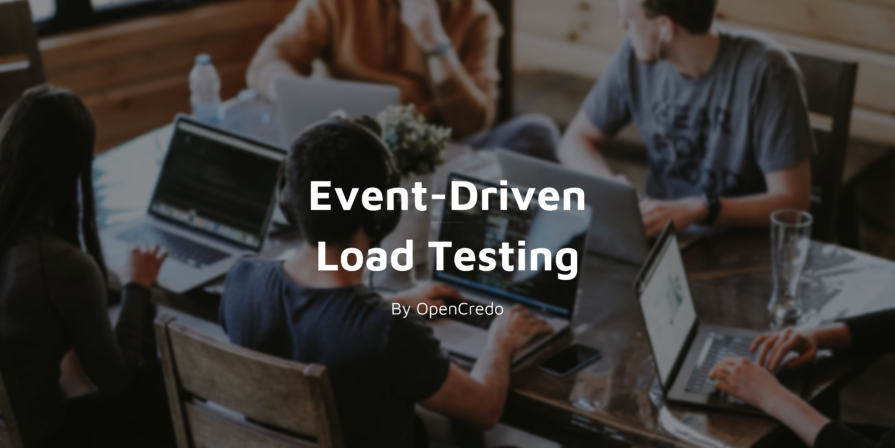
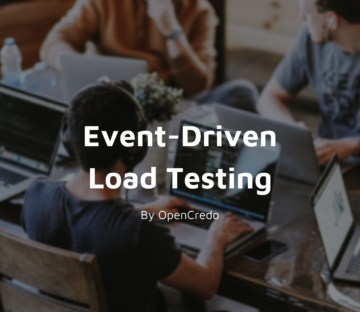
October 12, 2023 | Blog, Platform Engineering
Check out our latest blog “Event Driven Load Testing” which explores how, through some smart automation techniques, testing strategies can be adapted to support scale-up organisations where there are potentially many disparate teams needing to work together.
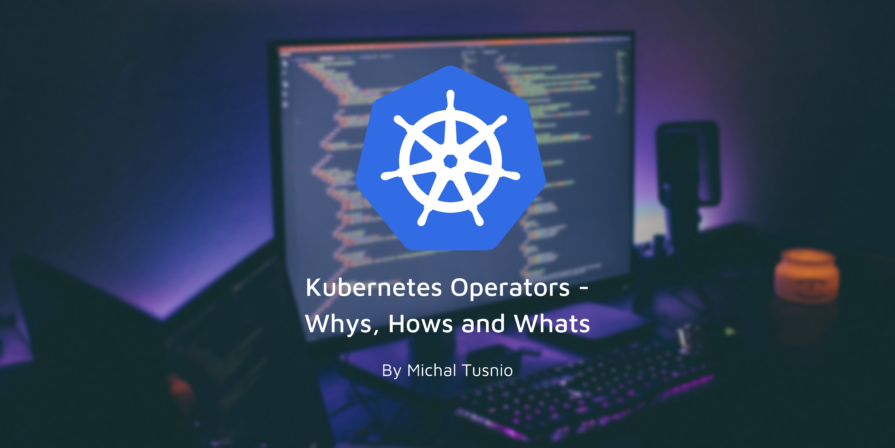
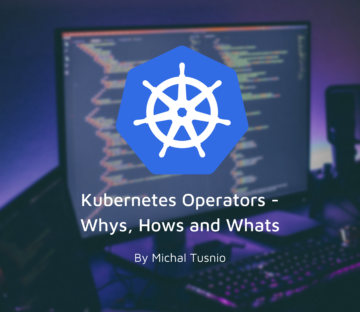
September 27, 2023 | Blog, Kubernetes
Learn to create your first Kubernetes operator by checking out our Senior Consultant Michal Tusnio’s latest blog, “Kubernetes Operators – Whys, Hows and Whats” where he takes you on a journey from zero to operator.


September 19, 2023 | Blog, Data Analysis
Check out our Lead Consultant Ebru Cucen and Sage Publishing Data Scientist Adam Day co-present on “Research Fraud Detection in OpenAlex with Graph Data Science” at YOW! London 2022.
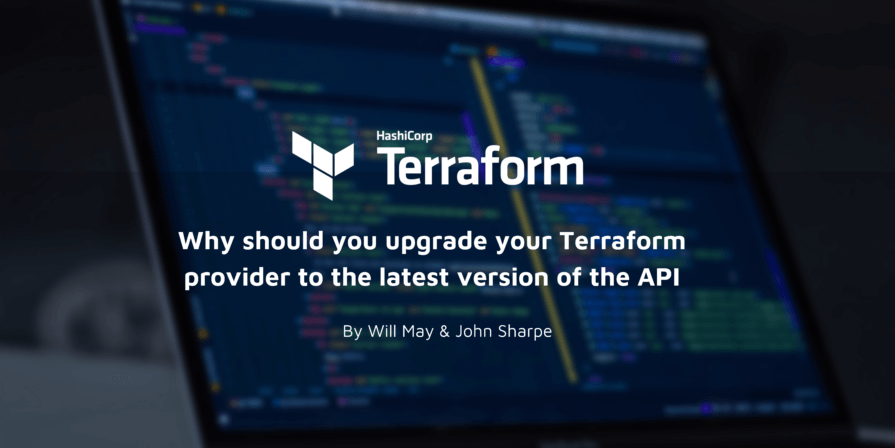
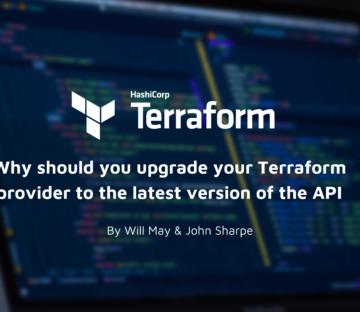
August 17, 2023 | Blog, Terraform Provider
Check out John Sharpe and Will May’s latest blog where they give suggestions for Terraform Provider authors who are thinking about upgrading from SDKv2 to Framework
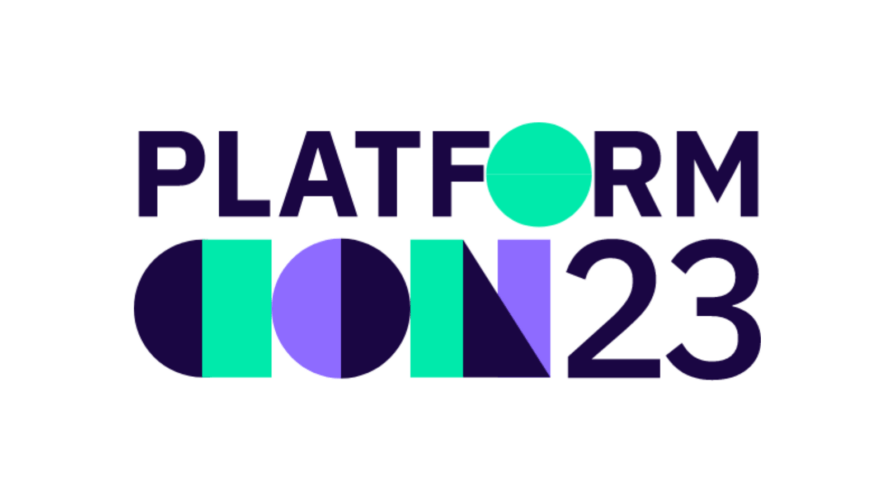
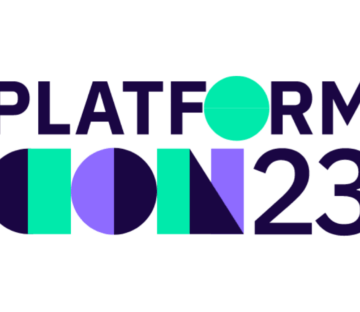
July 20, 2023 | Blog, Platform Engineering
Watch the recording of our CEO/CTO Nicki Watt and other PlatformCon Conference speakers discussing the highlights and lowlights of the talks and the Platform Engineering community, as well as lessons learned and trends spotted.


July 11, 2023 | Blog, Platform Engineering
Check out our CEO/CTO, Nicki Watt’s, talk “Why is it so hard to create a great Platform-as-a-Product?” from the PlatformCon Conference 2022.
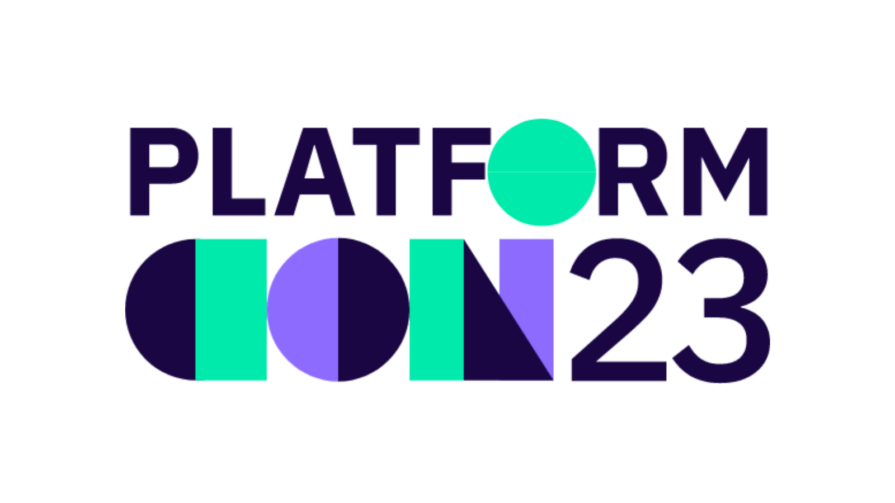
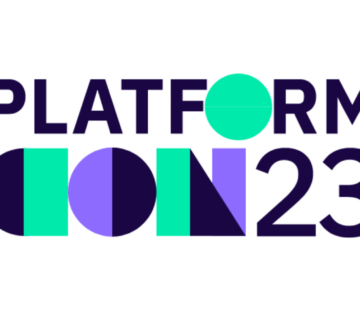
July 5, 2023 | Blog, Platform Engineering
Watch the recording of our Technical Delivery Director, James Bowkett from the PlatformCon Conference 2023 in his talk The Golden Age of the Platform.”
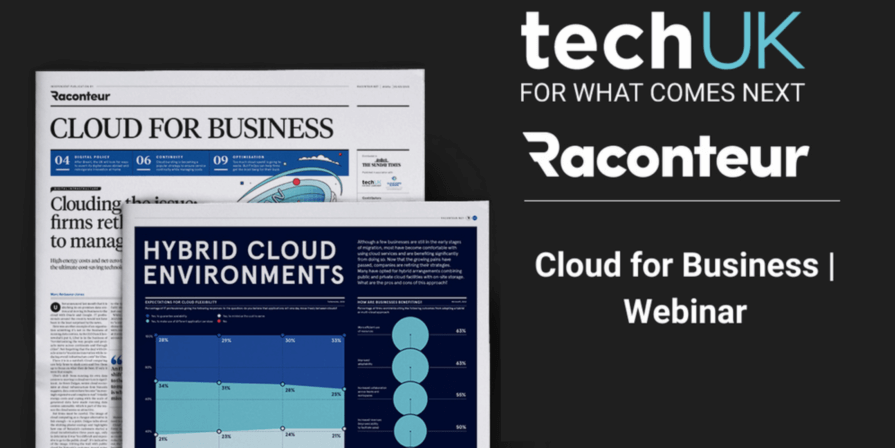
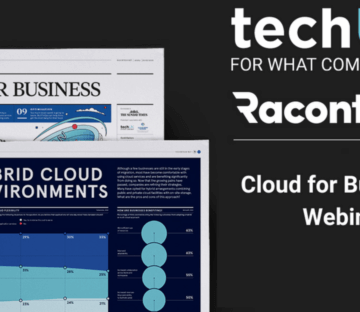
Check out the recording of our CEO/CTO Nicki Watt, and other panellists at the Raconteur and techUK webinar discussing “The Cloud for Business Report,” which was published in The Sunday Times on 5th March 2023.


March 29, 2023 | Blog, Kubernetes, Platform Engineering
Watch the recording of our CEO/CTO, Nicki Watt from the State of Open Conference on her talk “Internal Developer Platforms – Of the people, By the people, For the people.”
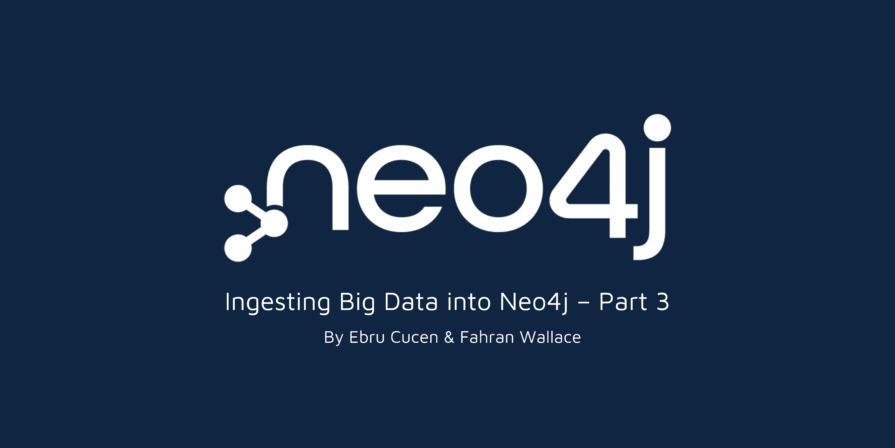
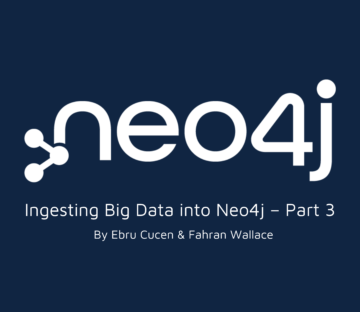
March 9, 2023 | Blog, Data Analysis, Neo4j
Check out the last part of Ebru Cucen and Fahran Wallace’s blog series, in which they discuss their experience ingesting 400 million nodes and a billion relationships into Neo4j and what they discovered along the way.
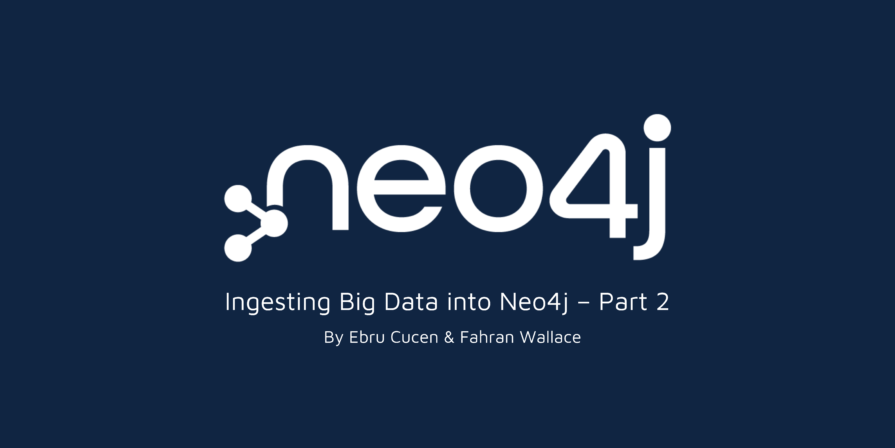
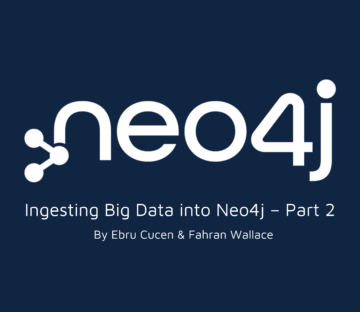
February 16, 2023 | Blog, Data Analysis, Neo4j
Check out Part 2 of Ebru Cucen and Fahran Wallace’s blog series, in which they discuss their experience ingesting 400 million nodes and a billion relationships into Neo4j and what they discovered along the way.
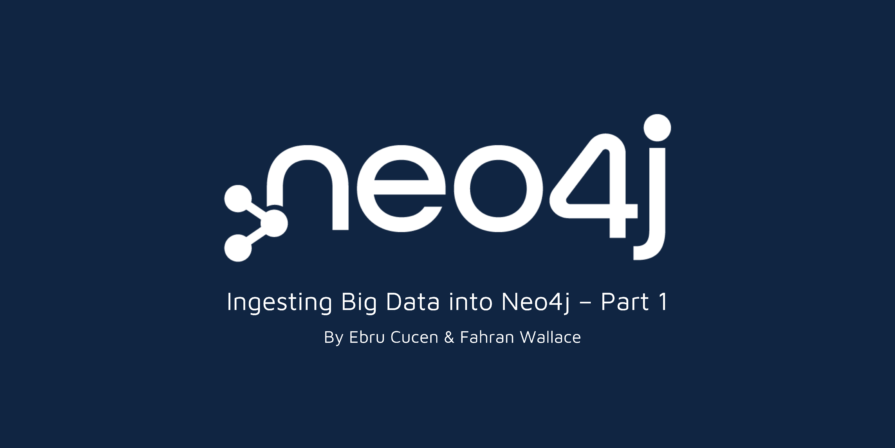
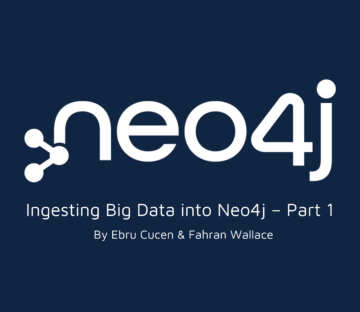
January 26, 2023 | Blog, Data Analysis, Neo4j
Fahran Wallace and Ebru Cucen’s most recent blog post is part 1 of a three-part series. They investigate how OpenCredo ingested 400 million nodes with a billion relationships into Neo4j.

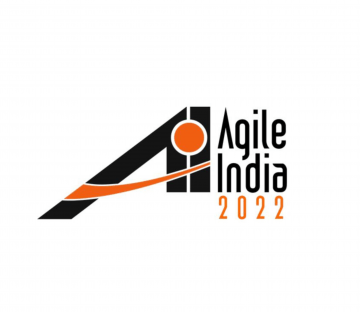
October 18, 2022 | Blog, Organisational Transformation, Software Consultancy
Watch Simon Copsey’s talk from the Agile India Conference on “Systems Thinking for Happy Staff and Elated Customers.”

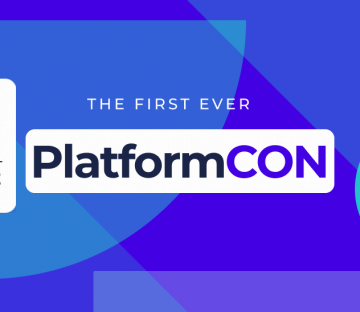
June 22, 2022 | Platform Engineering
Watch the recording of our CEO/CTO, Nicki Watt from the PlatformCon Conference 2022 on her talk “People, Process, and Platform – a community-focused approach.”


June 16, 2022 | Data Analysis, Data Engineering
In this lunch & learn session Matt Farrow shares the new developments in Scala and what it could all mean for Scala’s future.


June 1, 2022 | Open Source, Software Consultancy
Watch the talk ‘The Zen School of Github Actions’ by our Lead Consultant, Jonathan Ruckwood from Devoxx UK 2022


May 26, 2022 | Data Analysis, Data Engineering
As data becomes ubiquitous and deeply interconnected, tracing where who or which system that data comes from – its lineage – will create bigger problems and opportunities for us on the horizon. Watch the recording of James Bowkett’s talk from Devoxx UK on ‘Tracing Your Data’s DNA’


March 24, 2022 | Data Analysis, Data Engineering
In this Lunch & Learn session our Senior Consultant, Seb Margineanu shares an overview of the Databricks Lakehouse Platform by exploring the evolution of Databricks.


March 10, 2022 | Data Engineering, Open Source
In this lunch & learn session, Ebru Cucen and Alberto Faedda explore the historical background of GraphQL with case examples and a demo of how it can be used.


March 3, 2022 | AWS, Open Source, Software Consultancy
Watch our Lunch & Learn by Hieu Doan and Alberto Faedda as they share how engineers and security teams can secure their software development processes with the Secure Pipelines application.


November 4, 2021 | Kubernetes
We always read that ‘security is everyone’s responsibility’. For any organisation, big or small, security should always be the primary concern—not a mere afterthought. In terms of Kubernetes, securing a cluster is challenging because it has so many moving parts and, apart from securing our Kubernetes environment, we also want to control what an end-user can do in our cluster.
To achieve these goals, we can start with the built-in features provided by Kubernetes like Role-Based Access Control (RBAC), Network Policies, Secrets Management, and Pod Security Policies (PSP). But we know these features are not enough. For example, we may want specific policies like ‘all pods must have specific labels’. And even if we have the policies in place, the next big question is how to enforce them on our Kubernetes cluster in an easy and repeatable manner.
In this blog post, we’ll address this challenge and other questions pertaining to OPA and how it can integrate into Kubernetes.


September 2, 2021 | Blog, Cloud, Kubernetes


February 9, 2021 | Cloud Native, DevOps, Kubernetes
Watch Nicki Watt’s talk on Platform Engineering as a (Community) Service at GOTOpia to learn what it takes to build a platform that is fit to serve the communities which will ultimately use it.
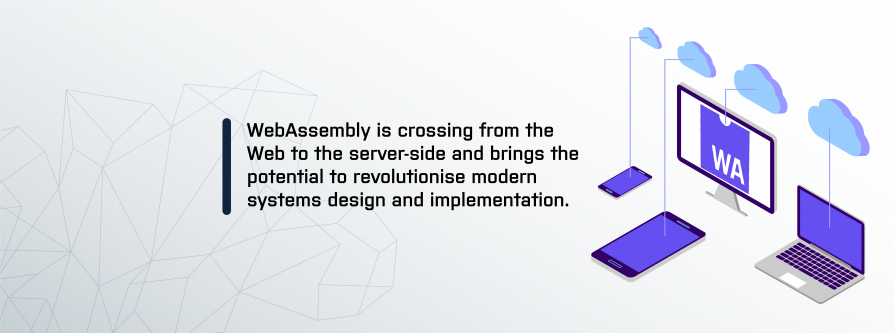
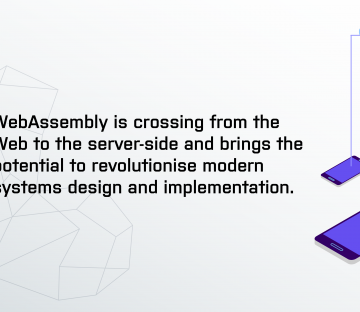
December 11, 2020 | Cloud, Cloud Native, Kubernetes, Microservices
“WebAssembly is a safe, portable, low-level code format designed for efficient execution and compact representation.” – W3C
In this blog, I’ll cover the different applications of Wasm and WASI, some of the projects that are making headway, and the implications for modern architectures and distributed systems.
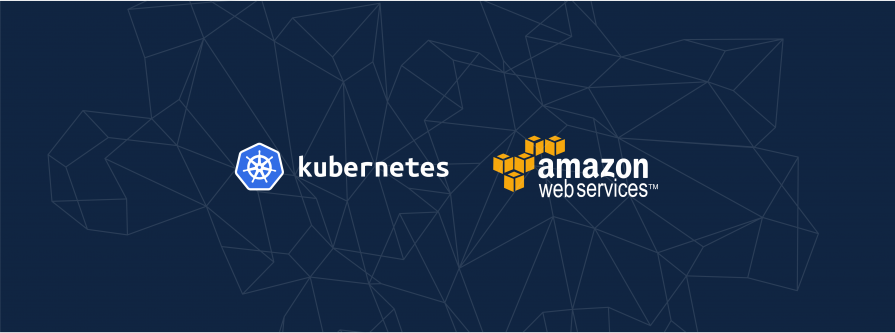
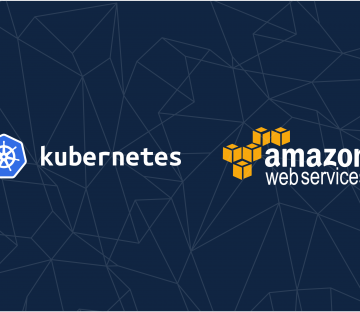
October 29, 2020 | Cloud, Kubernetes, Open Source
While working with a client recently, we experienced some issues when attempting to make use of NLB external load balancer services when using AWS EKS. I wanted to investigate whether these issues had been fixed in the upstream GitHub Kubernetes repository, or if I could fix it myself, contributing back to the community in the process.

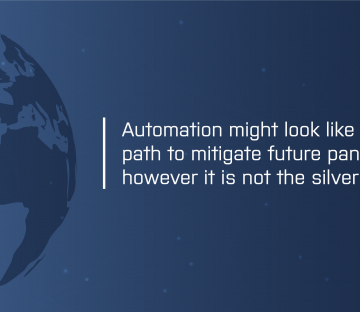
At the time of this post, the UK is making steps to exit from an unprecedented lockdown measures for the Coronavirus. Much of the UK workforce are still making efforts to work-from-home with mainly key workers operating – at risk – in public. Many industries have shut down completely. Consequently, many businesses are reflecting on what happens next and how do we better mitigate future pandemic events?

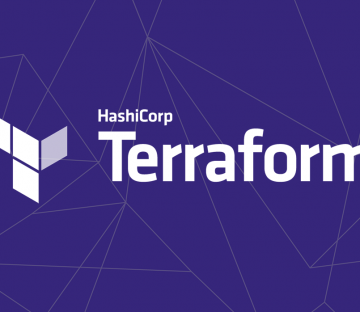
October 3, 2019 | Cloud, DevOps, Hashicorp, Open Source
Terraform 0.12 in recent years has emerged as the de facto standard with regards to defining and managing cloud infrastructure. It is one of four primary tools offered by HashiCorp, (Terraform, Vault, Consul and Nomad) and underpins the workflows that make up their Cloud Operating Model.
Since its first release in 2014, the wider Terraform community has embraced frequent releases and this past year has been no exception. HashiCorp announced the release of Terraform 0.12 in May 2019 and as of writing this post the official release is 0.12.9.


September 12, 2019 | Cloud Native, Microservices, Software Consultancy
As a technology leader, you’ll be aware that competitive pressures and shifting business requirements are driving changes in the technical architectures of many organisations. This means you need a new strategic approach based on the ability to continually evolve elements of your systems and architectures.


May 31, 2018 | DevOps
As traditional operations has embraced the concept of code, it has benefited from ideas already prevalent in developer circles such as version control. Version control brings the benefit that not only can you see what the infrastructure was, but you can also get reviews of changes by your peers before the change is made live; known to most developers as Pull Request (PR) reviews.


May 16, 2018 | Microservices
To identify service boundaries, it is not enough to consider (business) domains only. Other forces like organisational communication structures, and – very important – time, strongly suggest that we should include several other criteria in our considerations.


January 23, 2018 | Data Engineering, DevOps
Machine Learning is a hot topic these days, as can be seen from search trends. It was the success of Deepmind and AlphaGo in 2016 that really brought machine learning to the attention of the wider community and the world at large.


January 11, 2018 | Data Engineering
The last few years have seen Python emerge as a lingua franca for data scientists. Alongside Python we have also witnessed the rise of Jupyter Notebooks, which are now considered a de facto data science productivity tool, especially in the Python community. Jupyter Notebooks started as a university side-project known as iPython in circa 2001 at UC Berkeley.


August 9, 2017 | Cloud, DevOps, Terraform Provider
The recent 0.10.0 release of HashiCorp Terraform, saw a significant change to the way Providers are managed. Specifically, the single open source code repository for Terraform has been divided into core and multiple provider repositories.


July 11, 2017 | Cloud, Cloud Native
Over the years, OpenCredo’s projects have become increasingly tied to the public cloud. Our skills in delivering cloud infrastructure and cloud native applications have deepened and the range of cloud projects we are able to take on has grown. From enterprise cloud brokers to cloud platform migration in restricted compliance environments, our ability to deliver on the cloud is now a core component of our value proposition.


May 9, 2017 | Cassandra
Data analytics isn’t a field commonly associated with testing, but there’s no reason we can’t treat it like any other application. Data analytics services are often deployed in production, and production services should be properly tested. This post covers some basic approaches for the testing of Cassandra/Spark code. There will be some code examples, but the focus is on how to structure your code to ensure it is testable!
This blog is written exclusively by the OpenCredo team. We do not accept external contributions.


February 13, 2017 | Data Engineering
One of the stated intentions behind the design of Java 8’s Streams API was to take better advantage of the multi-core processing power of modern computers. Operations that could be performed on a single, linear stream of values could also be run in parallel by splitting that stream into multiple sub-streams, and combining the results from processing each sub-stream as they became available.


January 24, 2017 | Cloud
This blog aims to provide an end to end example of how you can automatically request, generate and install a free HTTPS/TLS/SSL certificate from Let’s Encrypt using Terraform. Let’s Encrypt is a free, automated, and open certificate authority (CA) aiming to make it super easy (and free – did I say free!) for people to obtain HTTPS (SSL/TLS) certificates for their websites and infrastructure. Under the hood, Let’s Encrypt implements and leverages an emerging protocol called ACME to make all this magic happen, and it is this ACME protocol that powers the Terraform provider we will be using. For more information on how Let’s Encrypt and the ACME protocol actually work, please see how Let’s Encrypt works.


September 21, 2016 | DevOps
Sometimes, it can be difficult to write automated tests for parts of your application due to complexities introduced by an external dependency. It may be flaky or have some sort of rate limiting, or require sensitive information which we don’t want to expose outside of our production environment. To get around this, teams might take the approach of manually stubbing the service or using mocks – but the former is tedious and error prone, whereas the latter doesn’t test collaboration at all.


September 6, 2016 | Cassandra
A growing number of clients are asking OpenCredo for help with using Apache Cassandra and solving specific problems they encounter. Clients have different use cases, requirements, implementation and teams but experience similar issues. We have noticed that Cassandra data modelling problems are the most consistent cause of Cassandra failing to meet their expectations. Data modelling is one of the most complex areas of using Cassandra and has many considerations.


August 26, 2016 | Kubernetes
This post is the second of a series of three tutorial articles introducing a sample, tutorial project, demonstrating how to provision Kubernetes on AWS from scratch, using Terraform and Ansible. To understand the goal of the project, you’d better start from the first part.


June 7, 2016 | Software Consultancy
In my previous blog post I explained to you the Seven Deadly Sins of Project Managers. With that post in mind, I would like to share with you my views on what a project manager needs to overcome these sins and become a valuable member of the team, and ultimately helping to achieve success on the project.


March 7, 2016 | DevOps
Businesses exist to make money; their purpose isn’t just to generate revenue, but to create profits, now and in the future. Generating profits means delivering products or services that people want to buy. The creation of what people want is the entire purpose of delivery pipelines. (NB: The rest of this article will use ‘product’ to refer to both products and services.)


March 3, 2016 | Software Consultancy
In this post, I’ll be sharing some React/Redux boilerplate code that Vince Martinez and I have been developing recently. It’s primarily aimed at developers who are familiar with the React ecosystem, so if you are new to React and/or Redux, you might like to have a look at Getting Started with React and Getting Started with Redux.


March 3, 2016 | Software Consultancy
JetBrains (the people behind IntelliJ IDEA) have recently announced the first RC for version 1.0 of Kotlin, a new programming language for the JVM. I say ‘new’, but Kotlin has been in the making for a few years now, and has been used by JetBrains to develop several of their products, including Intellij IDEA. The company open-sourced Kotlin in 2011, and have worked with the community since then to make the language what it is today.


March 2, 2016 | DevOps, Microservices
Many of our clients are currently implementing applications using a ‘microservice’-based architecture. Increasingly we are hearing from organisations that are part way through a migration to microservices, and they want our help with validating and improving their current solution. These ‘microservices checkup’ projects have revealed some interesting patterns, and because we have experience of working in a wide-range of industries (and also have ‘fresh eyes’ when looking at a project), we are often able to work alongside teams to make significant improvements and create a strategic roadmap for future improvements.


January 26, 2016 | Data Engineering
In this second post about Hazelcast and Spring, I’m integrating Hazelcast and Spring-managed transaction for a specific use case: A transactional Queue. More specifically, I want to make the message polling, of my sample chat application, transactional.


December 16, 2015 | Cloud, DevOps
In the rush to embrace DevOps, many organisations seek out tools to help them achieve DevOps nirvana; the magical tools that will unify Development and Operations, stop the infighting, and ensure collaboration. This search for tools to solve problems exists in many domains, but seems particularly prevalent in IT (it may be real, or a reflection of my exposure to IT). The temptation to embrace new tools as a panacea is high, because the problems in IT seem so pervasive and persistent.


November 3, 2015 | Software Consultancy
My JavaOne experience was rather busy this year, what with three talks presented in a single day! The first of these talks “Debugging Java Apps in Containers: No Heavy Welding Gear Required” was delivered with my regular co-presenter Steve Poole, from IBM, and we shared our combined experiences of working with Java and Docker over the past year.


November 1, 2015 | Microservices
To use or not to use hypermedia (HATEOAS) in a REST API, to attain the Level 3 of the famous Richardson Maturity Model. This is one of the most discussed subjects about API design.
The many objections make sense (“Why I hate HATEOAS“, “More objections to HATEOAS“…). The goal of having fully dynamic, auto-discovering clients is still unrealistic (…waiting for AI client libraries).
However, there are good examples of successful HATEOAS API. Among them, PayPal.


October 31, 2015 | Microservices
Over the past few weeks I’ve been writing an OpenCredo blog series on the topic of “Building a Microservice Development Ecosystem”, but my JavaOne talk of the same title crept up on me before I managed to finish the remaining posts. I’m still planning to finish the full blog series, but in the meantime I thought it would be beneficial to share the video and slides associated with the talk, alongside some of my related thinking. I’ve been fortunate to work on several interesting microservice projects at OpenCredo, and we’re always keen to share our knowledge or offer advice, and so please do get in touch if we can help you or your organisation.


October 30, 2015 | Software Consultancy
Having completed my marathon 3-talks-in-one-day at JavaOne on Wednesday, I’m now in a position to share all of the slides and supporting material. First up is the content associated with my “Thinking Fast and Slow with Software Development” talk. I’ve already blogged about an earlier version of this presentation on the OpenCredo blog, and so won’t go into more detail here. However, I will include the video recording (thanks to the JavaOne team for this!), the latest version of the slides, and a much requested reading list!


October 28, 2015 | Software Consultancy
Let’s have a quick look at the most interesting changes and new features that are now available to Akka users. As there are many new features to highlight in the new Akka release I will focus on those related to Akka Persistence first and cover other areas in a separate post.


October 12, 2015 | DevOps
DevOps is transformative. This (hopefully) won’t be true forever, but it is for now. While the modern management practices of separating development and operations (and to a lesser extent, everyone else) prevail, the tearing down of the walls that separate them will remain transformative. In company after company, management and front-line staff are coming to realise that keeping functions separate, which are inherently interdependent, is a model for blame, shifted responsibility, and acrimony. It’s easy to divvy-up a company up based on function. To many people, it seems the most logical way to do it. Ops does operations, Dev does development, Marketing markets, etc. It seems much harder to do it any other way. So why do it?


October 1, 2015 | Data Engineering
Akka Streams, the new experimental module under Akka project has been finally released in July after some months of development and several milestone and RC versions. In this series I hope to gently introduce concepts from the library and demonstrate how it can be used to address real-life stream processing challenges.
Akka Streams is an implementation of the Reactive Streams specification on top of Akka toolkit that uses actor based concurrency model. Reactive Streams specification has been created by the number of companies interested in asynchronous, non-blocking, event based data processing that can span across system boundaries and technology stacks.


September 24, 2015 | Microservices
Unless you’ve been living under a (COBOL-based) rock for the last few years, you will have no doubt heard of the emerging trend of microservices. This approach to developing ‘loosely coupled service-oriented architecture with bounded contexts’ has captured the hearts and minds of many developers. The promise of easier enforcement of good architectural and design principles, such as encapsulation and interface segregation, combined with the availability to experiment with different languages and platforms for each service, is a (developer) match made in heaven.
![Microservice Platforms: Some Assembly [Still] Required. Part Two](https://opencredo.com/wp-content/uploads/2018/10/banner-services-895x196.jpg)
![Microservice Platforms: Some Assembly [Still] Required. Part Two](https://opencredo.com/wp-content/uploads/2018/10/banner-services-360x312.jpg)
September 20, 2015 | Microservices
Over the past five years I have worked within several projects that used a ‘microservice’-based architecture, and one constant issue I have encountered is the absence of standardised patterns for local development and ‘off the shelf’ development tooling that support this. When working with monoliths we have become quite adept at streamlining the development, build, test and deploy cycles. Development tooling to help with these processes is also readily available (and often integrated with our IDEs). For example, many platforms provide ‘hot reloading’ for viewing the effects of code changes in near-real time, automated execution of tests, regular local feedback from continuous integration servers, and tooling to enable the creation of a local environment that mimics the production stack.


August 12, 2015 | Microservices
Over the last few months one of my main projects at OpenCredo has involved creating various microservices which are interacted with via REST. We’ve been working with a relatively rich domain model, which in turn has presented a lot of challenges in how to design our various resources. This blog post aims to summarise various techniques and practices which I’ve found helpful in overcoming these challenges.




August 2, 2013 | Software Consultancy
Configuration management was born in the pre-cloud era. Remember the days when acquiring a super powerful multi core server felt like winning the jackpot? Infrastructure was a slightly different place back then. Yet for all the recent developments in DevOps, its legacy is still with us.


July 4, 2013 | Software Consultancy
In which situations Spring Data Hadoop (SDH) can add value, and in which situations would it be a poor choice? This article follows on from an objective summary of the features of SDH.


June 30, 2013 | Software Consultancy
Spring Data Hadoop (SDH) is a Spring offshoot project that allows the invocation and configuration of Hadoop tasks within a Spring application context. It offers support for Hadoop jobs, HBase, Pig, Hive, Cascading and additionally JSR-223 scripting for job preparation and tidy-up.
It is most suited for use in organisations with existing Spring applications or investment in Spring expertise. Some SDH features replicate functionality of tools in the Hadoop ecosystem that DevOps engineers who maintain a Hadoop cluster will be more familiar with.


February 25, 2013 | Neo4j
As part of our work, we often help our customers choose the right datastore for a project. There are usually a number of considerations involved in that process, such as performance, scalability, the expected size of the data set, and the suitability of the data model to the problem at hand.
This blog post is about my experience with graph database technologies, specifically Neo4j. I would like to share some thoughts on when Neo4j is a good fit but also what challenges Neo4j faces now and in the near future.


February 13, 2012 | Software Consultancy
Recently we were approached by a client to do some performance testing of the web application they had written. The budget allowed two days for this task. Ok. No problem. Yes, we can. Naturally I had one or another question though…


February 8, 2012 | Data Analysis, Data Engineering
Most of the important players in this space are large IT corporations like Oracle and IBM with their commercial (read expensive) offerings.
While most of CEP products offer some great features, it’s license model and close code policy doesn’t allow developers to play with them on pet projects, which would drive adoption and usage of CEP in every day programming.


February 3, 2012 | Software Consultancy
